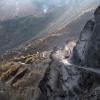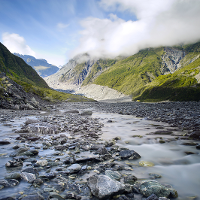
Landslide EVO will be having its annual meeting virtually from 14th to 17th September, 2020. Due to the current COVID-19 pandemic, a virtual meeting will take place instead of the physical annual meeting to have been held in Kathmandu, Nepal.
 © Nalidsa Sukprasert | Dreamstime.com
© Nalidsa Sukprasert | Dreamstime.com
The Landslide EVO team will be having its annual meeting virtually this year from 14th to 17th September, 2020. The meeting will consist of 2-3 hour sessions on each respective day. The move to hold the meeting virtually comes due to the current COVID-19 pandemic.
The virtual meeting will take place instead of the physical annual meeting which was initially scheduled to be held in Kathmandu, Nepal. Landslide EVO employs recent developments in technological and conceptual data collection, processing and communication to advance resilience building in data scarce and under developed mountainous communities. In particular, it involves identifying three convergent evolutions that hold great promise. Landslide EVO employs a bottom-up participatory, or “citizen science,” approach to increase resilience to hydrologically-induced landslides and flood hazards in mountainous Western Nepal. LandslideEVO leverages advances in in-situ/remote monitoring, vulnerability assessment, and polycentric risk governance to co-generate locally actionable knowledge and tools for disaster risk reduction and resilience building.
The focal area of the LandslideEVO project is the Karnali river basin in Western Nepal, a remote and understudied basin, that suffers from a complex interplay of natural hazards. These include hydrologically-induced landslides and cascading hazards, such as flooding. In recent years, these hazards have caused serious damage to local infrastructure (e.g., roads, irrigation canals, houses, and bridges) and affected citizens' livelihoods (e.g., 34,760 families affected by the August 2014 floods).
LandslideEVO has four working packages (WP):
- WP1: Hydrometeorological characterization and prediction
- WP2: Landslide and flood risk mapping and prediction
- WP3: Knowledge co-generation & polycentric risk governance
- WP4: Operational disaster risk reduction and resilience building
IIASA leads WP3 on knowledge co-generation and polycentric risk governance.
Project Page

